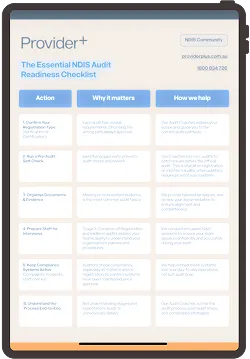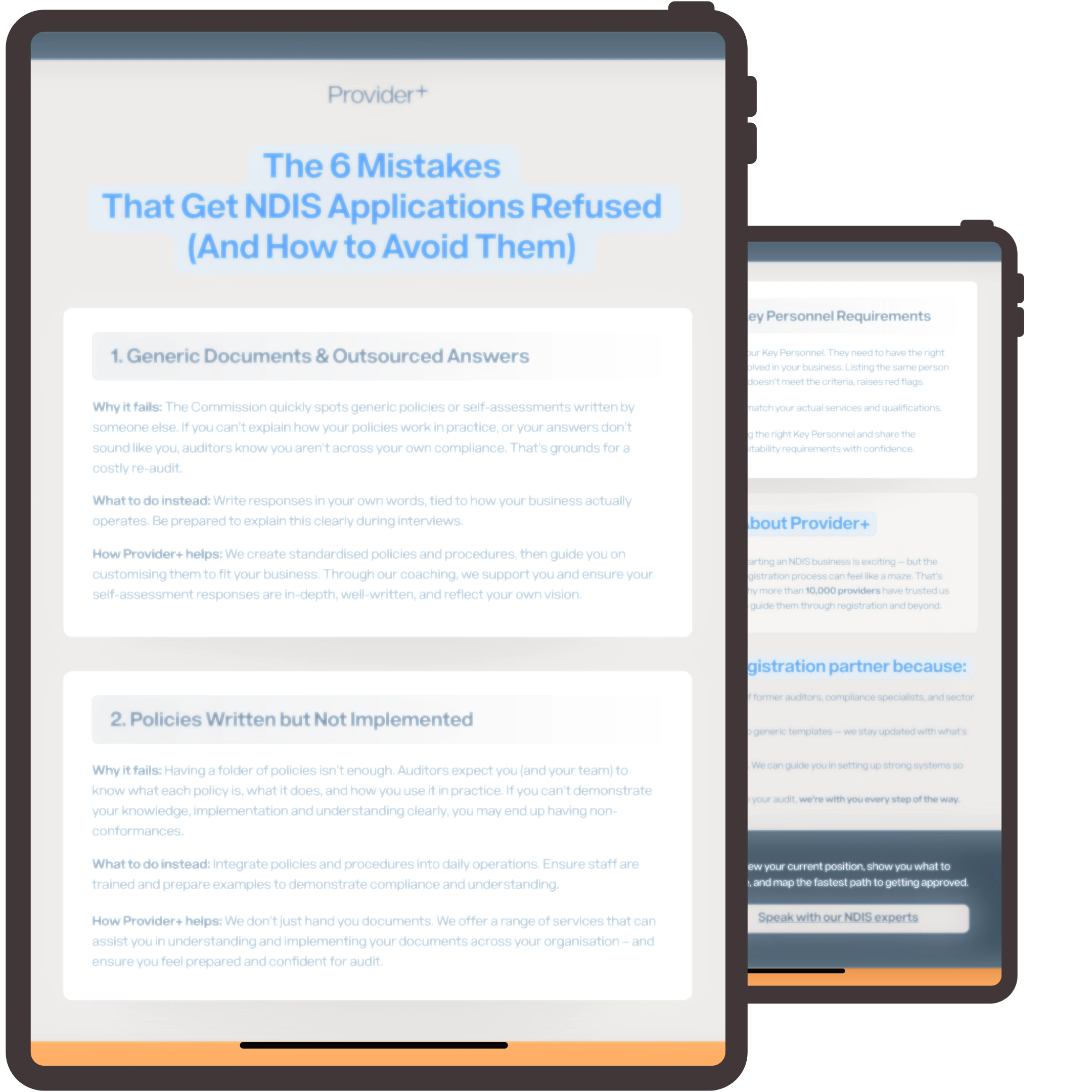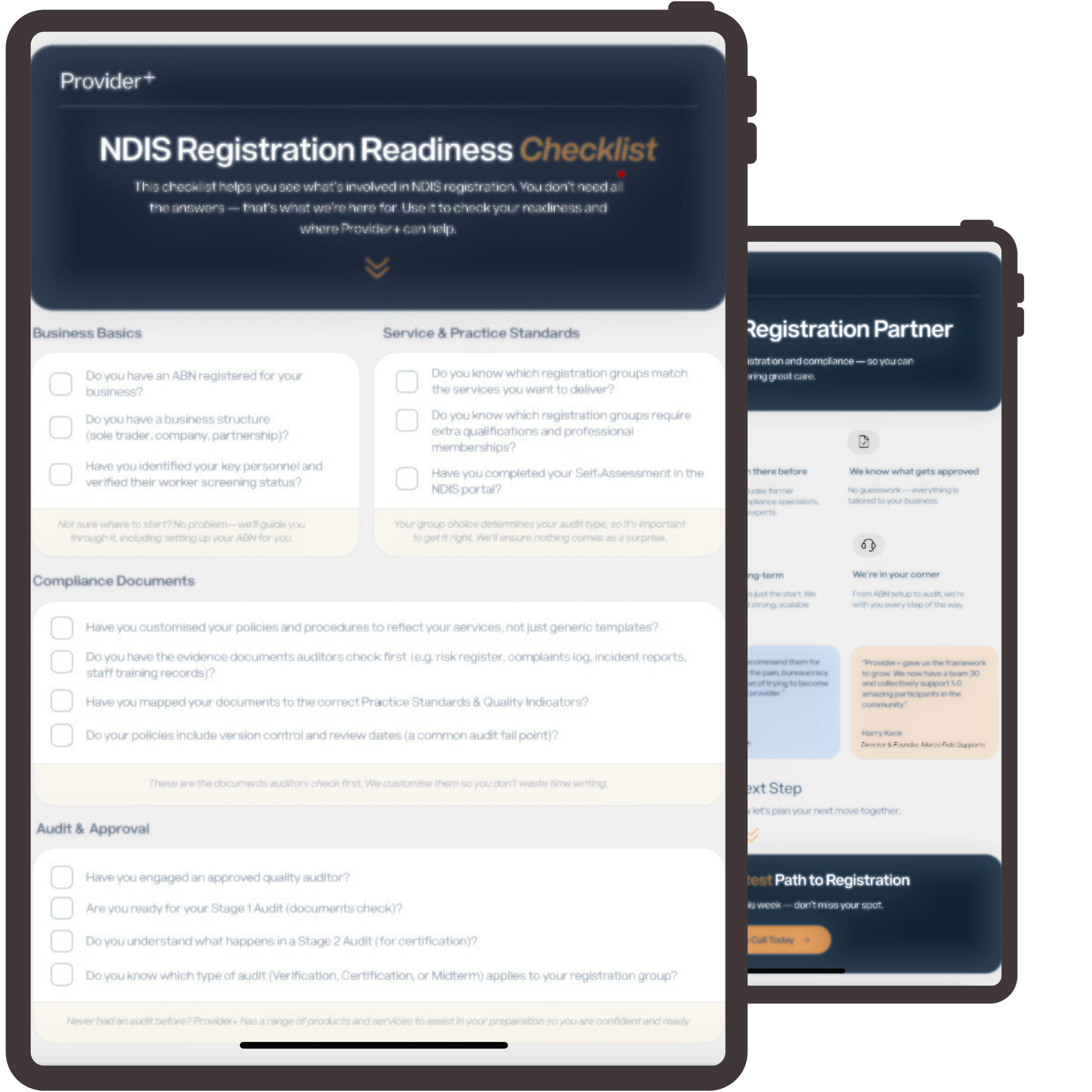An Overview of NDIS Practice Standards for Providers
If you're an individual or organisation registered under the National Disability Insurance Scheme (NDIS), you should be familiar with the outcomes of the NDIS Practice Standards by now.
For those thinking of registering to become an NDIS provider or simply curious about the benchmark for assessment, here's a quick overview of the NDIS Practice Standards and what to expect.
The NDIS Practice Standards and their outcomes are set out in the National Disability Insurance Scheme (Provider Registration and Practice Standards) Rules 2018. Service providers should also refer to the NDIS (Quality Indicators) Guidelines 2018 to understand what indicators they can use to conform to these outcomes.
Registered NDIS providers must comply with these practice standards so as to maintain the high-quality service and operational standards expected of them as a registered provider. To maintain these standards, providers are regularly assessed against the requirements and outcomes of the NDIS Practice Standards.
The NDIS Practice Standards are the requirements and outcomes that all providers registering for the NDIS will be assessed against.
Do all the Practice Standards apply to me?
No, not all the Practice Standards apply to you or your organisation. However, all NDIS providers must meet the Practice Standards covered by the core module. This is in addition to the supplementary modules specific to your registration group or the services you wish to deliver.
For example, if you wish to provide early childhood support to NDIS participants, you'll have to meet the outcomes of the core module and the supplementary module that covers early childhood supports.
What do the Practice Standards cover?
The Practice Standards are broadly divided into the core module and the supplementary modules.
All NDIS-registered providers must meet the outcomes of the core module, which covers:
- rights and responsibility for participants
- governance and operational management
- the provision of supports, and
- the support provision environment
Depending on the services you wish to provide, you will also need to meet the outcomes of the relevant supplementary modules, such as those covering:
- high intensity daily personal activities
- specialist behaviour support
- implementing behaviour support plans
- early childhood supports
- specialised support co-ordination, and
- specialist disability accommodation
All providers need to demonstrate they can meet the core supports as a minimum.
Why do I need to understand the NDIS Practice Standards?
Understanding the requirements and outcomes of the Practice Standards will help you prepare well for audit. Auditors use quality indicators for each outcome to assess your compliance with the Practice Standards.
If you're registering or re-registering, you'll need to demonstrate that you understand your compliance obligations.
Your policies, procedures, staff and/or participants handbook that you upload during the registration process should clearly support your ability and your agreement to meet these practice standards.
A Stage 1 and Stage 2 audit will then be conducted to assess your evidence of complying with the standards.
A verified provider may undergo a different auditing process as a certified provider. This may include an interview with your participants and staff in addition to reviewing evidence that you have implemented the stated policies for your business.
Are the Practice Standards still important after I have passed the audit?
Absolutely. Not only will you need to provide evidence during your surveillance audits, but you’ll also need to demonstrate compliance when you renew your registration.
To maintain a sustainable NDIS business, you need to continue implementing the Practice Standards daily and be able to provide evidence of compliance.




































FAQs
Here is our frequently asked questions.


